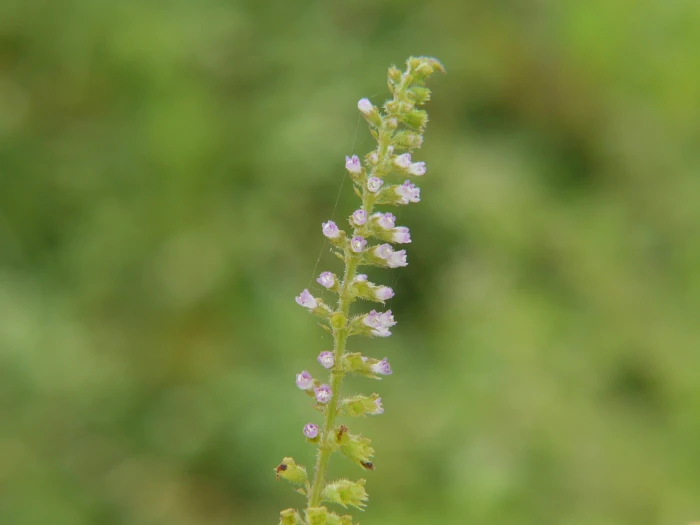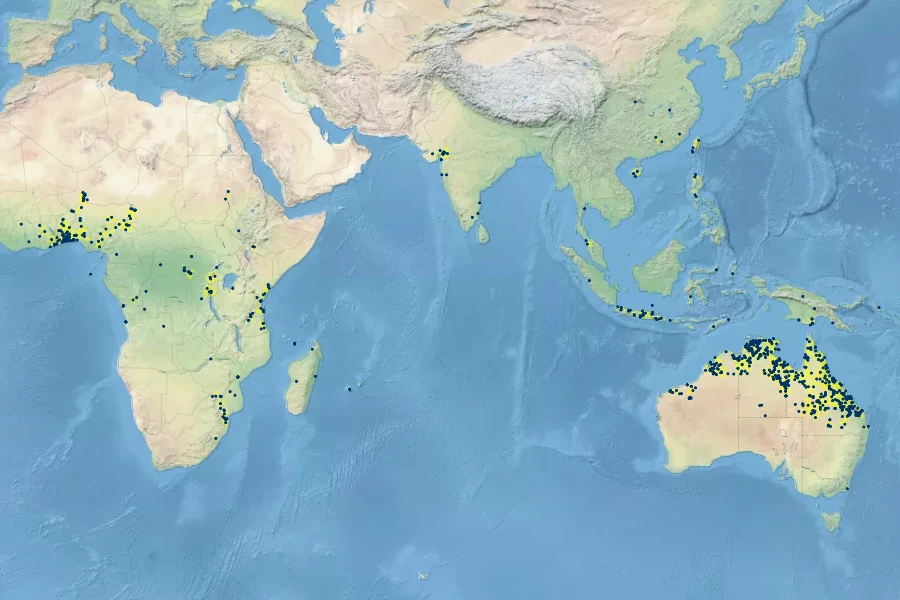African Basil
/
(Basilicum polystachyon)
African Basil (Basilicum polystachyon)
/

© Dinesh Valke
CC BY-SA 4.0
Image By:
© Dinesh Valke
Recorded By:
Copyright:
CC BY-SA 4.0
Copyright Notice:
Photo by: © Dinesh Valke | License Type: CC BY-SA 4.0 | License URL: http://creativecommons.org/licenses/by-sa/4.0/ | Uploader: dineshvalke | Publisher: iNaturalist |


















Summary
Basilicum polystachyon, commonly known as African Basil, is a perennial herb that thrives in a variety of habitats including grasslands, open woodlands, and disturbed areas. It is native to Africa, Madagascar, southern Asia, New Guinea, Australia, and various Pacific and Indian Ocean islands. This plant typically grows to a height of 1-2 feet (30-60 cm) and spreads out to about the same width. African Basil has a bushy growth habit with small, oval, green leaves and produces spikes of white or pale pink flowers that are attractive to pollinators during its flowering season.
African Basil is valued for its aromatic leaves, which are used in culinary dishes, and for its essential oils, which have medicinal properties. It is easy to grow and maintain, making it a popular choice for herb gardens and as a companion plant in vegetable gardens due to its reputed ability to repel pests. It prefers full sun to part shade, well-drained soil, and moderate watering. While it is not particularly drought-tolerant, it can handle short periods of dryness. In cultivation, it is important to be aware that Basilicum polystachyon can spread outside its native range; gardeners should check local regulations before planting.CC BY-SA 4.0
African Basil is valued for its aromatic leaves, which are used in culinary dishes, and for its essential oils, which have medicinal properties. It is easy to grow and maintain, making it a popular choice for herb gardens and as a companion plant in vegetable gardens due to its reputed ability to repel pests. It prefers full sun to part shade, well-drained soil, and moderate watering. While it is not particularly drought-tolerant, it can handle short periods of dryness. In cultivation, it is important to be aware that Basilicum polystachyon can spread outside its native range; gardeners should check local regulations before planting.CC BY-SA 4.0
Plant Description
- Plant Type: Herb
- Height: 1-2.5 feet
- Width: 1-3 feet
- Growth Rate: Rapid
- Flower Color: White
- Flowering Season: Summer, Fall
- Leaf Retention: Deciduous
Growth Requirements
- Sun: Full Sun, Part Shade
- Drainage: Fast, Medium, Slow
Common Uses
Bee Garden, Butterfly Garden, Deer Resistant, Edible*Disclaimer: Easyscape's listed plant edibility is for informational use. Always verify the safety and proper identification of any plant before consumption., Low Maintenance, Potted Plant
Natural Habitat
Native to grasslands, open woodlands, and disturbed areas
Other Names
Common Names: Basilicum, East Indian Basil, Wild Basil
Scientific Names: Basilicum polystachyon, Basilicum polystachyon var. stereocladum, Lehmannia ocymoidea, Lumnitzera moschata, Lumnitzera polystachyon, Lumnitzera polystachyon, Moschosma dimidiatum, Moschosma moschatum, Moschosma polystachyon
GBIF Accepted Name: Basilicum polystachyon
